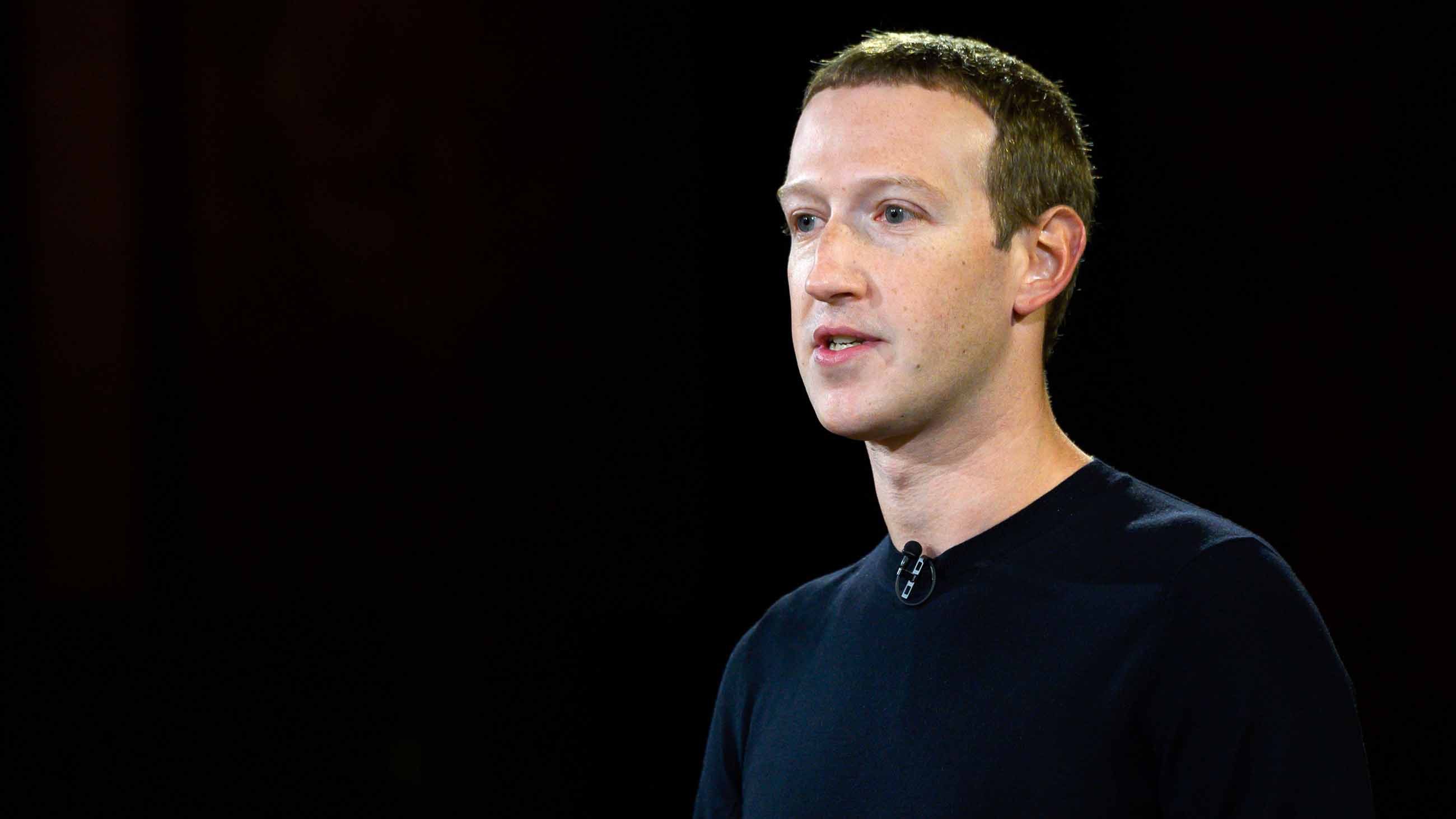On Monday, Politico reported that Facebook founder and CEO Mark Zuckerberg has been hosting private, off-the-record dinners with prominent, and in some cases controversial, conservatives, including South Carolina Senator Lindsey Graham, commentator Ben Shapiro, and Fox News host Tucker Carlson.
These meetings, Politico reporters Natasha Bertrand and Daniel Lippman write, “are part of Zuckerberg’s broader effort to cultivate friends on the right amid outrage by President Donald Trump and his allies over alleged ‘bias’ against conservatives at Facebook and other major social media companies.”
Zuckerberg characterized the dinners as simply “meeting new people and hearing from a wide range of viewpoints.”
But, at a time when ascendant Democratic presidential candidate Elizabeth Warren is calling for regulators to break up Facebook, and when other progressives argue that Facebook favors right-wing disinformation campaigns, Zuckerberg may see advantages in cultivating allies on the right.
The story broke during a week of intensified scrutiny of Facebook’s role as an arbiter of truth in the public sphere. Starting late last week, after Facebook began permitting political candidates to run false ads on its platform, Warren’s campaign began running an inaccurate ad on the site in order to draw attention to the policy. (The ad, which claimed that Facebook and Zuckerberg had endorsed Trump’s 2020 presidential campaign, also included prominent notice that the claim was false).
In response, Zuckerberg has argued that Facebook should not be in the business of policing speech, even when that speech is false. “I’m here today because I believe we must continue to stand for free expression,” he said Thursday afternoon in an address at Georgetown University.
To be clear, treating Facebook as an open platform for expression, similar to a broadcast TV station, has always been a little disingenuous. Unlike a broadcaster or newspaper, Facebook does not simply print content. It also uses sophisticated algorithms to target that content to specific users. In other words, Facebook does more than passively host a false political ad. It also delivers that ad to certain people — and effectively keeps it out of sight from everyone else.
Indeed, that targeting is part of what has made Facebook such an effective tool for spreading everything from political propaganda to pseudoscience.
Zuckerberg may have more chances to discuss these points soon. The mogul rarely gives media interviews, but a conversation with a major TV network is airing on Friday afternoon. The network? Fox News.
Also in the news:
• This week, Ancestry — a company which for years has focused on helping users piece together their family trees and track down new relatives — announced the launch of a new line of products to provide information on genetic health. Unlike competitor 23andMe, which allows users to order DNA testing kits directly from their homes, Ancestry’s products will be ordered by a physician and come with access to professional genetic counseling. The health-oriented testing will hone in on 17 genes, including those related to hereditary breast and ovarian cancer, as well as those that cause sickle cell anemia and cystic fibrosis. But critics say the kits will only provide insight on a very limited set of conditions. “The risk, as with the other consumer genomics,” Robert Green, director of a genetic research program at Brigham and Women’s Hospital, told STAT, “is that patients will think this is somehow a comprehensive and encyclopedic investigation of your entire genomic health.” What’s more, said Laura Hercher, a geneticist at Sarah Lawrence College, very few people who don’t have a family history of disease will gain medically-important information. “For most,” she told STAT, “the idea that DNA testing will help your doctor guide your health decisions is an overstatement.” (STAT)
• Critics of President Trump’s planned U.S.-Mexico border wall have raised no shortage of objections: It will be costly, it may be ineffective, it could harm local biodiversity. In a feature for Scientific American, April Reese now reports that local governments in Texas’s Lower Rio Grande Valley, where Trump has proposed 95 miles of new steel fence, are bracing for yet another potential downside: flooding. The worry is that fencing that cuts across the river’s floodplain and tributaries could become clogged with debris and trash during heavy rains, effectively acting as a dam. It’s happened before, Reese reports: In 2008 and 2011, steel fencing along Arizona’s southern border clogged during monsoon rains and flooded communities both in the U.S. and in Mexico. The Sierra Club’s Scott Nicol, a Texas resident, told Scientific American that he thinks a fence in South Texas would cause even worse flooding damage, noting that “there’s a lot more water in the river here.” The Trump administration has waived requirements to perform environmental-impact analyses for several stretches of the planned wall, to expedite construction. (Scientific American)
• A study published in the journal Pediatrics on Monday found that self-reported suicide attempts by black teenagers in the United States increased by 73 percent between 1991 and 2017, according to data from the Centers for Disease Control and Prevention’s Youth Risk Behavior Survey. While the research team found an increase in suicide attempts in black teens, they also reported a decrease in suicide attempts in Hispanic and Asian-American or Pacific Islander teens, and no significant change in white teens. Researchers used data from nearly 200,000 high school students for the study, which also looked at injuries sustained during suicide attempts. The data showed an increase in injury among young black males. According to CDC data, during these years, suicide was the second leading cause of death for teens 15 to 19 years old. The study also references previous data showing that suicide rates among black boys aged 5 to 12 are double those of young white males. The study authors suggest preventative actions, such as finding ways to reduce stigma around mental illness and to “increase help-seeking behaviors.” (The Guardian)
• The editors of Princeton’s Science & Global Security (SGS) journal decided this week not to publish a controversial paper that cast doubt on international investigative agencies’ conclusions that the Syrian government perpetrated a deadly chemical weapons attack in 2017. Last month, SGS editors postponed the paper’s publication in light of criticism of its methods, and of the political leanings of one of its lead authors, Theodore Postol, a weapons systems expert and professor emeritus at MIT. Postol, who has argued against the Syrian government’s responsibility in a number of chemical attacks, and who has been accused of being a sympathizer of Syrian President Bashar al-Assad, called SGS’s decision to drop the paper “totally wrong and untenable,” and told Science he has resigned from his post on SGS’s editorial board. Postol and his co-authors argued in their paper that a small crater at the attack site, thought to be the release point of the chemical, could have been formed by an artillery rocket and warhead, a weapon used by multiple fighting factions, instead of a bomb from by a government airplane. The analysis cast doubt on the conclusions of the United Nations’ Joint Investigative Mechanism and U.S. intelligence agencies. Gregory Koblentz, a biological and chemical weapons expert at George Mason University, said the editors made the right call, but he wished they had been more transparent about what went wrong during the review process. According to Koblentz, the SGS editors “missed an opportunity to send a strong signal that this type of disinformation dressed up as technical analysis has no place in the pages of a peer-reviewed scientific journal.” (Science)
• A New York Times investigation published this week found that a small team of political appointees at the Environmental Protection Agency (EPA) may have helped drive the agency’s ongoing feud with the state of California, bypassing the involvement of its own staff in the state. Last month, EPA administrator Andrew Wheeler accused California of being out of compliance with a number of federal regulations, such as unacceptable levels of lead and arsenic in their drinking water, as well as unsafe quantities of human waste contamination. However, many California-based officials within the agency, The Times reported, feel that Wheeler’s complaints are politically biased and exaggerated. Some suggested that Wheeler is targeting California due to ongoing feuds with the Trump administration, such as the revoking of California’s authority to set automobile emissions standards higher than the federal government, over which the state has filed a lawsuit. Those criticizing Wheeler’s complaints against the state have been quick to point at that many other U.S. states also fail to comply with all EPA regulations, and that California is well-known for striving to address environmental concerns. (The New York Times)
• And finally: In a statement published on Monday, the Egypt Exploration Society (EES) formally accused Oxford classics professor Dirk Obbink of removing several ancient Bible fragments from the EES Oxyrhynchus Papyri project and selling them to Hobby Lobby, a U.S. arts and crafts chain founded by Evangelical Christian David Green. Of 13 items sold over three known transactions, nine went to Hobby Lobby and the Green family collection. The rest went to the Museum of the Bible in Washington, D.C., which the Greens founded and help fund. Formerly the editor of the Oxyrhynchus Papyri project, Obbink was removed in 2016, and, as of June 2019, is banned from accessing the collection. Obbink has previously denied the allegations and is currently still employed by Oxford. In its report, The Guardian noted it could not reach Obbink for comment. (The Guardian)










